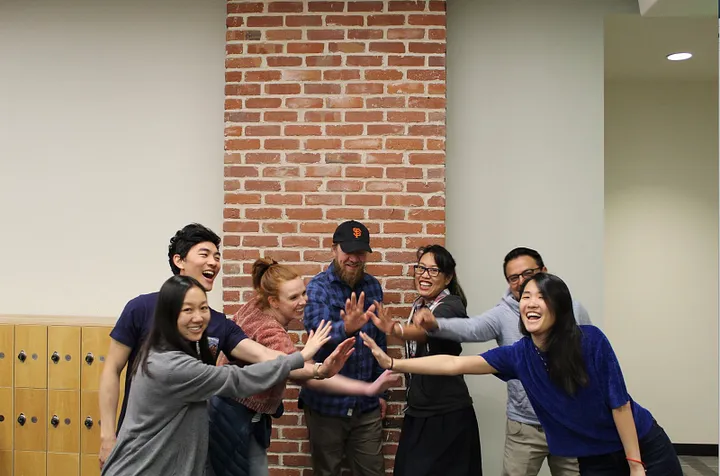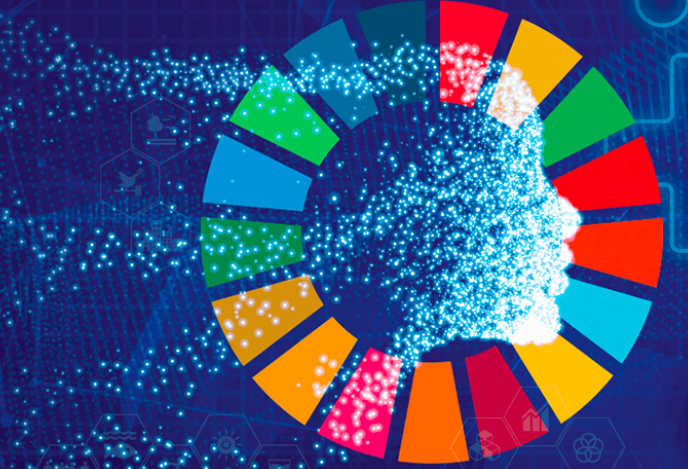“AI for Good: Transforming Social Determinants of Health”
“AI for Good” and “Data for Good” initiatives have seen significant growth in recent years, driven by technological advancements, increasing awareness of social and environmental issues, and a growing interest in leveraging data and AI to address global challenges. AI for Good focuses on understanding and mitigating the impacts of social determinants of health factors such as socioeconomic status, education, neighborhood, employment, and social support networks on health outcomes. Evidence shows that up to 60% of an individual’s physical and mental health is influenced by social factors, underscoring the importance of this work.
This article explores the organizations driving AI for Good, the challenges they face, and how you can get involved.
Shaping the AI for Good Agenda
Several organizations and foundations are helping to define a framework for identifying, prioritizing and tracking AI For Good initiatives.
United Nations Sustianable Development Goals
The United Nations Sustainable Development Goals (SDGs) and AI For Good initiatives are aligned in their aims to harness technology for positive social impact. The SDGs, adopted by the United Nations consist of 17 goals to address global challenges such as poverty, inequality, climate change, and peace and justice by 2030.

UN Sustainable Development Goals
The SDGs shape the AI for Good agenda in several key ways:
- Guiding Framework: The SDGs offer a comprehensive framework for identifying and addressing global challenges. The AI for Good initiative uses this framework to direct AI research and applications towards specific areas of need.
- Setting Priorities: The SDGs highlight priority areas such as health (Goal 3), education (Goal 4), and clean water (Goal 6). AI technologies are developed and deployed to create solutions in these domains, such as predictive analytics for disease outbreaks or AI-driven educational tools.
- Encouraging Collaboration: The SDGs emphasize partnerships (Goal 17) for achieving sustainable development. The AI for Good initiative fosters collaboration among governments, the private sector, academia, and civil society to leverage AI technologies effectively.
- Promoting Ethical Standards: The SDGs call for inclusive and equitable progress. The AI for Good initiative promotes the ethical use of AI, ensuring that technologies are developed and deployed in ways that respect human rights and do not exacerbate inequalities.
- Monitoring and Accountability: The SDGs include targets and indicators for tracking progress. AI technologies can support this by providing data analytics and monitoring tools, helping to measure progress towards achieving the goals.
- Innovation and Sustainability: The SDGs encourage innovation (Goal 9) and sustainable solutions. AI technologies are being explored to optimize resource use, improve energy efficiency, and support sustainable practices in various industries.
AI for Good Foundation
The AI for Good Foundation is a nonprofit organization that leverages artificial intelligence (AI) to address global challenges and promote social good. It focuses on harnessing AI’s potential to solve complex problems across various domains. The foundation’s initiatives related to social determinants of health (SDOH) aim to address the underlying factors that influence individual and community health outcomes.
Government Programs
Governments provide research and guidance to enhance health, lengthen life, and reduce illness and disability. For example, the National Institutes of Health (NIH) supports and funds research efforts that use artificial intelligence (AI) to address the impact of social determinants of health (SDOH). The NIH provides grants and funding opportunities for research projects that explore how AI can be used to understand and mitigate the effects of SDOH. This includes funding studies that use AI to analyze large datasets, identify patterns, and develop predictive models that can inform public health interventions.
World Health Organization
The World Health Organization Focus Group on Artificial Intelligence for Health (FG-AI4H) plays an important role in addressing social determinants of health by leveraging AI technologies. The group promotes AI to collect and analyze large-scale data, including social determinants of health such as income, education, employment, and living conditions. This data helps identify vulnerable populations and understand the root causes of health disparities. AI models developed under the guidance of the FG-AI4H can predict health outcomes based on social determinants. This allows healthcare providers and policymakers to anticipate health risks and intervene early.
AI for Good Volunteers: Bridging the Resource Gap
Social impact and nonprofit organizations are critical players in addressing social factors and improving public health. While funding for AI initiatives is increasing, many organizations lack the resources and infrastructure to develop, maintain, and scale AI solutions. This is where AI for Good volunteers play a vital role. Platforms like Delta Analytics, DataKind, and the AI for Good Foundation connect data scientists with social good projects. These platforms allow volunteers to contribute their skills to solving problems in critical areas like health, education, and environmental issues.
For example, Delta Analytics provided a grant to TeenSmart International to predict risks to the health and well-being of youth. TeenSmart is a nonprofit organization that promotes healthy lifestyles and self-leadership in teens through free online services. Delta Analytics provided a team of data scientists to develop predictive models and an MLOps implementation. Delta Analytics also developed a dashboard to analyze trends, population risks and identify teens requiring interventions.

Image courtesy Delta Analytics
In another example, the AI for Good Foundation engaged volunteers in projects focused on homelessness and housing insecurity—key social determinants of health. This involved analyzing vast datasets to uncover patterns and correlations between various social factors—such as income levels, employment status, and housing stability. AI systems were developed to predict which individuals or families are most at risk of losing their housing, based on various indicators. This proactive approach allows social services to intervene before individuals become homeless, providing support like temporary housing or financial assistance.
AI Industry Funding
The AI industry is contributing to the development of AI solutions aimed at social and environmental challenges. Companies like Google, Microsoft and AWS are leveraging their resources, expertise, and platforms to address challenges.
Google’s AI for Social Good initiative addresses health, education, and environmental sustainability by partnering with organizations and applying AI. For example, the Green Light project uses AI and Google Map driving trends to optimize traffic lights to reduce vehicle emissions in cities, helping improve air quality and mitigate climate change. Early numbers estimate a potential for 30% reduction in stops and 10% reduction in greenhouse gas emissions.
Google’s Open Health Stack initiative aims to lower barriers to equitable healthcare by providing developers with a suite of open-source building blocks for creating next-generation healthcare apps. These tools are particularly beneficial in areas with limited resources or unreliable internet connectivity, enabling healthcare workers to access vital information and make informed decisions.
Microsoft’s AI for Good Lab is dedicated to harnessing the power of AI to address societal challenges. For example, the Lab developed high-resolution population maps using satellite imagery, AI, and spatial demography, starting in low-resource/high-climate-stress countries. These maps help model exposure to climate-linked migration risks, food insecurity, and disease burden. This enables anticipatory action to help exposed populations before a disruption strikes, to prevent or reduce its humanitarian impacts.
Microsoft AI for Health supports social impact organizations by giving them access to AI technology and expertise to combat health challenges. This philanthropic program has partnered with over 200 grantees to address health inequities, enhance research capabilities, and accelerate medical research.
Amazon Web Services (AWS) offers cloud computing resources and AI tools to non-profits and researchers working on AI for Good projects. AWS also supports initiatives like the Earth on AWS program, which provides satellite data and AI tools to monitor and protect the environment.
Open-source, Open Data
The barrier to AI is lower than ever thanks to open-source. Open-source provides the benefits of community, quality, security, customization, and cost.
Open-source software allows researchers, developers, and organizations worldwide to access, modify, and improve AI tools. This collaborative environment fosters innovation and ensures that advancements are not limited to well-funded entities. It democratizes AI development, making cutting-edge tools accessible to a broader audience, which can then be applied to social good projects.
Open-source libraries provide tools for building and deploying AI models. The key libraries include TensorFlow, PyTorch, Keras, scikit-learn, and HuggingFace Transformers.
Open source pre-trained models reduce the technical and financial barriers to developing AI solutions, making it easier for smaller entities to participate in AI-driven social good projects. Organizations that provide open-source models include: Hugging Face, OpenAI, Google Research, Facebook AI Research and NVIDIA.
There are also repositories specific to AI for Good initiatives providing scripts and solutions based on social good projects. Organizations providing GitHub repositories include Microsoft AI for Good Lab, DataKind, and Humanitarian Open Street Map.
Open data is increasing, enabling AI solutions to access large and more diverse data sets. This diversity can lead to more innovative solutions to complex social issues, as contributors from different backgrounds bring unique insights and ideas. Also, data standards are improving and gaining wider acceptance to promote the sharing and reuse of tools. For more information see Public SDOH Data Sources
Challenges
“AI for Good” and “Data for Good” initiatives have seen significant growth but the need to mitigate social and environmental factors to improve health is still great. The 2023 United Nations update on progress against the SDGs indicated that the world is on track to meet only 15 percent of SDG targets.
AI for social good projects are often one-off projects that lack long-term strategic planning and coordination across organizations. Effective solutions require collaboration across multiple sectors, including technology, government, non-profits, and academia. Aligning goals, resources, and expertise among these diverse stakeholders can be difficult.
Social impact organizations may lack the financial and technical resources to develop and deploy AI solutions effectively.
There are also ethical challenges. AI systems can perpetuate or even amplify existing biases when trained on biased data, leading to unfair outcomes, particularly in sensitive areas like healthcare, and education. Marginalized groups are often underrepresented or misrepresented in data sets used to train AI models. This can lead to biased outcomes that disproportionately affect these groups, reinforcing existing inequalities.
Also, AI solutions often need to be adapted to the specific cultural, economic, and social contexts in which they are deployed. What works in one country or community may not be effective or appropriate in another.
Getting Involved
Getting involved in “AI for Good” and “Data for Good” initiatives is a rewarding way to use your skills and interests to make a positive impact.
Many social impact organizations need help analyzing data or implementing AI solutions. Volunteering your time at Delta Analytics, DataKind, and the AI for Good Foundation can be an effective way to contribute. You can also volunteer to mentor students or professionals looking to break into AI or data science, especially those from underrepresented groups. If you know of social impact organizations that need help with data analytics or AI solutions refer them to platforms that provide grants and volunteers.
If you or your organization develop AI solutions or curate data that mitigate social and environmental factors to improve health, consider providing solutions as open source. Consider writing articles, giving talks, or creating content that promotes your solutions for social good. Also, you can look for open-source projects on GitHub or other platforms where your AI or data skills can contribute to socially impactful projects.
You can join relevant communities such as the AI for Good Foundation or DataKind. Attend events focused on AI and Data for Good to network, learn, and find opportunities for involvement. The AI for Good Global Summit has excellent speakers promoting AI to advance health, climate, sustainable infrastructure, and other global development priorities.

No responses yet